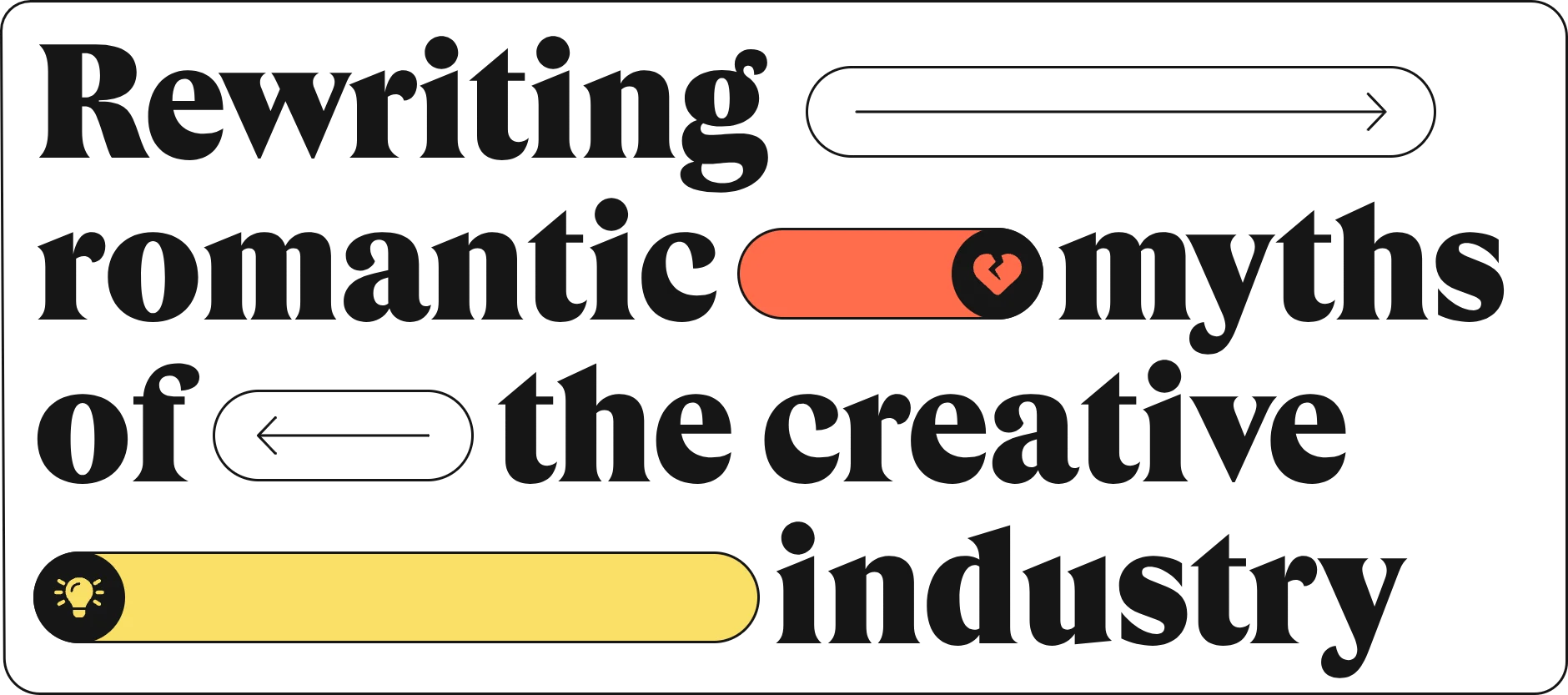

To celebrate the WeTransfer Ideas Report 2022, we invited journalist and design critic Anne Quito to pen the foreword of our findings. Here she explores how we can debunk and rewrite romantic (and unhelpful) myths about the creative industry.
The 16th-century Italian count Baldassare Castiglione coined an intoxicating Italian term that resonates with many in the creative industry. Sprezzatura, the art of shrouding effort and toil—like a swan elegantly gliding on the water, while frantically paddling beneath the surface—has characterized the public image of the industry for years.
The latest WeTransfer Ideas Report marks a moment of reckoning, of truth-telling, within the industry. A survey of thousands of people from 180 countries, who rely on WeTransfer’s tools daily, got to the heart of the matter: thriving in the creative sector today isn’t about effortless genius, but about mad hustle.
Shattering romantic notions about creative jobs is clearing space for honest conversations about the state of the sector. WeTransfer’s study, conducted in partnership with strategy firm TRIPTK, reveals that 56% of creatives don’t feel successful; most struggle with making enough money; and nearly 60% feel ill-prepared for a future that’s being largely defined by technologies like augmented reality, virtual reality, and artificial intelligence. Producing inventive solutions on deadline often requires a lot of personal sacrifice, with creative workers expected to demote their personal plans to meet the pressures of the job.
Glossing over the realities of the trade, it turns out, has resulted in poor compensation, feelings of being undervalued, underpaid, and even job burnout.
The current job dissatisfaction rate is cause for concern. Over 90% feel that there’s a general ignorance about their work, and more than half feel underappreciated by their peers, bosses, and clients. “What worries me the most is the devaluing of creative skills, like the belief that one person can manage social content, strategy, analytics and scheduling,” observes Chanté Joseph, a writer and digital content producer, and one of six industry experts interviewed for WeTransfer’s report. “The idea that it is ‘easy’ or you’re ‘just posting on social media’ is becoming a common rebuttal to people who feel like they’re undervalued and unsupported in their roles.”

Olivia Lopez, creative strategist and author, laments the ubiquity of “scope creep”—the notorious practice of adding tasks to a project outside of the contract—among clients who undervalued her expertise. “It took many years of bad experiences to realize that overextending often yielded fruitless labor,” she explains.
Unseen labor within the creative industry, in fact, is so prevalent that nearly 60% of survey respondents ranked “saying no” as the top skill they’d like to acquire.
But it’s not all heartbreak. WeTranfer’s 2022 Ideas Report also reveals an unwavering optimism within the sector, despite a year marked by an economic downturn, geopolitical upheavals, a climate crisis, and, lest we forget, a global pandemic. With the more sophisticated communication technology and productivity tools, and the greater appreciation for worker well-being fostered by the pandemic, many are now better able to forge a career on their own terms.
For a vast majority, the goal is autonomy, or “the freedom to explore what I find exciting every day,” as Marty Bell, a Portugal-based tech entrepreneur, puts it.
Ultimately, this tumultuous period has given creatives a clearer, perhaps more sobering outlook on their long-term priorities. WeTransfer’s Ideas Report offers plenty of evidence that having control over how they spend their time and talents is fundamental.
The most hardworking creatives admit that nurturing a creative mind means learning to regularly escape the hustle and grind. “I do have a problem with working too much,” Bell attests. “But it's also important to switch off, to touch grass, to swim in the sea, to wander the streets of Lisbon aimlessly without a phone for six hours on a Saturday afternoon.”

Ideas are a messy business. There are dead ends, wrong turns, and all manner of false starts. To get our heads around them, we created the WeTransfer Ideas Report—an annual roundup of insights from all over the globe about the unpredictable nature of creativity.

